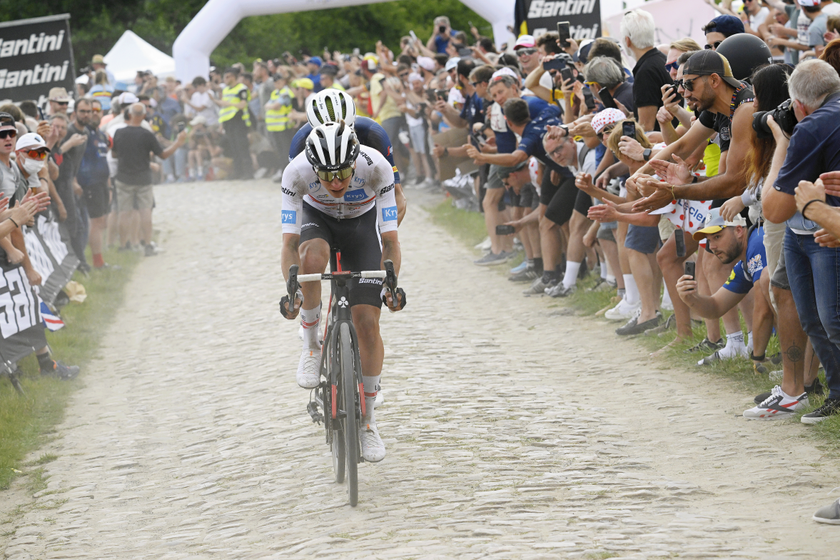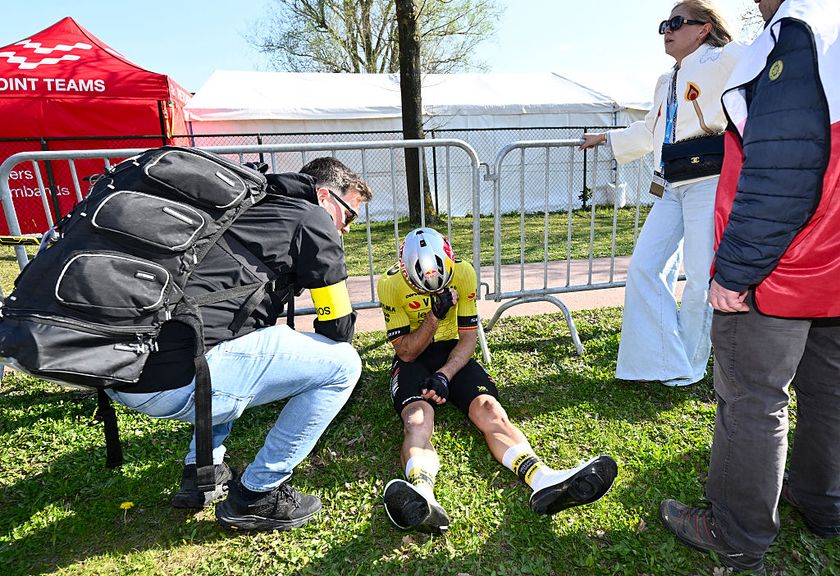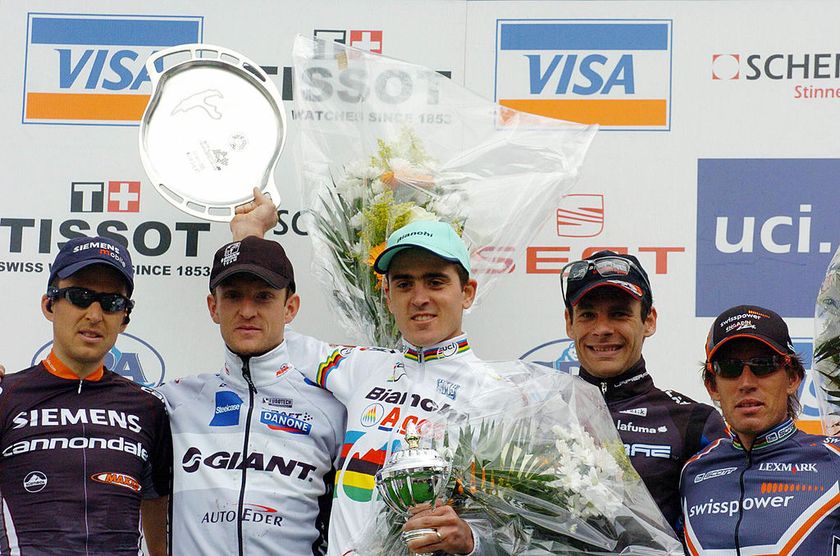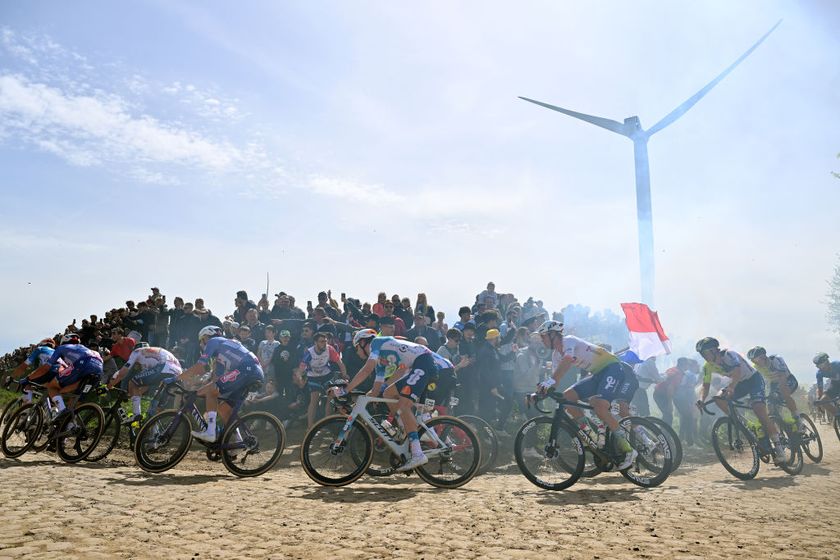Vegni puts his trust in UCI checks for mechanical doping
Giro d’Italia director warns against a climate of suspicion





Mauro Vegni, the director of the Giro d’Italia, is confident that the UCI’s search for mechanical doping by scanning bikes with a tablet device offers sufficient guarantees to ensure that there will be no doubts concerning the eventual winner of this year’s race.
The UCI revealed details of the tablet device and the magnetic flux density detection technology it uses to check for mechanical doping at a special demonstration to selected media, including Cyclingnews, at the UCI Headquarters in Aigle, Switzerland on Tuesday.
The UCI did not provide specifics on the efficiency of the tablet device but sent out a strong message of deterrent to anyone thinking of using mechanical doping in professional races. Hundreds of bikes have been checked using the tablet device so far this season and more are expected at the Giro d’Italia that begins in Apeldoorn, in the Netherlands on Friday.
Vegni welcomes the controls after being given assurances by the UCI on their ability to search for hidden motors. During last year’s Giro d’Italia there were several suspicious cases of riders changing bikes and some bikes were occasionally checked and even dismantled behind the podium as part of the search for hidden motors. None were found but the detailed Stade 2 and Corriere della Sera investigation suggests that hidden motors and even electromagnetic wheels have been used in professional races.
“I’m not worried. We asked the UCI for guarantees that the winner is certified. And that so is the system used to search for motors, so that the final result is not put in doubt by anyone,” Vegni told Gazzetta dello Sport.
“President Cookson has assured us that there will be a lot of attention to the matter, as is only right. He also assured us that the method adopted by the UCI - using the tablet - is by far the most trustworthy and the only one that can offer guarantees. We were ready to help fund the purchase of thermal cameras but they turned out not to be necessary. A lot of testing has been done on the tablet method. That’s enough for me. I’m not an engineer or an investigator, so I’ve got to trust them. And I do.”
A clear warning
Get The Leadout Newsletter
The latest race content, interviews, features, reviews and expert buying guides, direct to your inbox!
Vegni appears worried that a case of mechanical doping or any news on the subject could perhaps overshadow the racing at the Giro d’Italia. He sent out a clear warning against anyone looking to spark a mechanical doping scandal during the next three weeks.
“There’s going to be some serious trouble if someone discredits our race two days from the end and throws mud on the protagonists of the race by casting aspersions,” Vegni said.
“I don’t like the theory of suspicion and doubts. Nobody gains from it. You need proof and evidence, otherwise it's only speculation. Of course, that doesn’t mean we don’t face the question with vigilance. Technological doping is cheating. It’s like pharmaceutical doping or administrative doping in cycling and every sport. We’ve got to fight to change society’s tendency to cheat, to take short cuts. We’ll need time, like every change in society, but I’m optimistic.”









